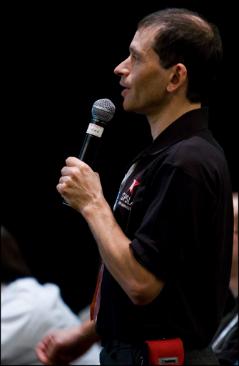That’s the spirit that has brought us fame!
We’re big, but bigger we will be
We can’t fail for all can see
That to serve humanity has been our aim!
Our products now are known, in every zone,
Our reputation sparkles like a gem!
We’ve fought our way through — and new
Fields we’re sure to conquer too
For the EVER ONWARD I.B.M.
Keeping up the blog has not been one of our strong points, but we have been making some progress in the last few months. We’ve been working our way through a review of Grace’s design and specification, with a few nontrivial changes:
- Classes create methods, rather than objects, so no longer have “dots” in their name
- Calling methods in superclasses relies on aliasing, not “super requests”
- Traits support stateless reusable components
- A simpler inheritance model that supports classes inheriting from multiple traits
- Replacing variadic methods with primitive sequences
We expect to describe these changes in a few blog posts soon, as we are working through a thoroughly revised specification. We plan to release the specification and implementations around the end of February, for feedback from the community. We then plan to hold workshops (as we did in 2011) to go over what we hope will get getting close to a 1.0 version of the language design. So: Onward! Ever Onward!



